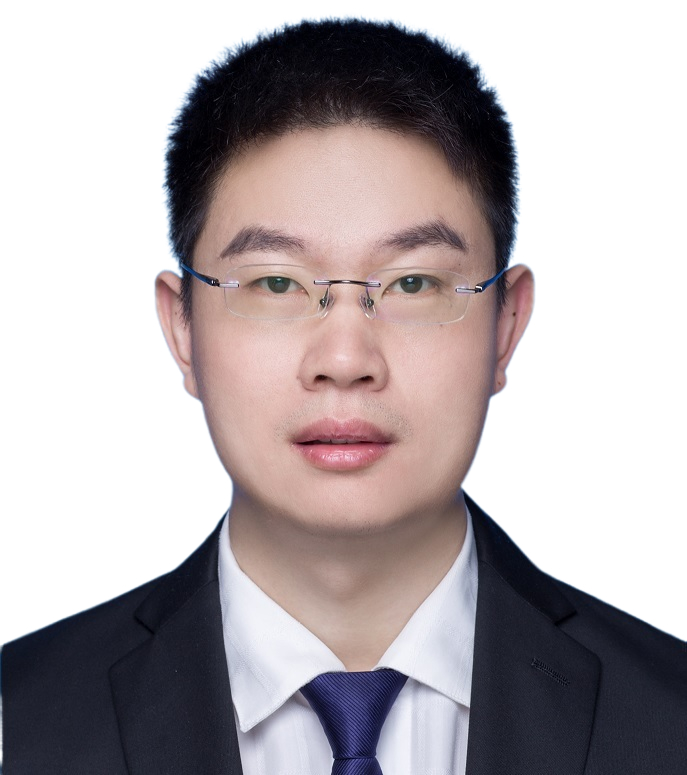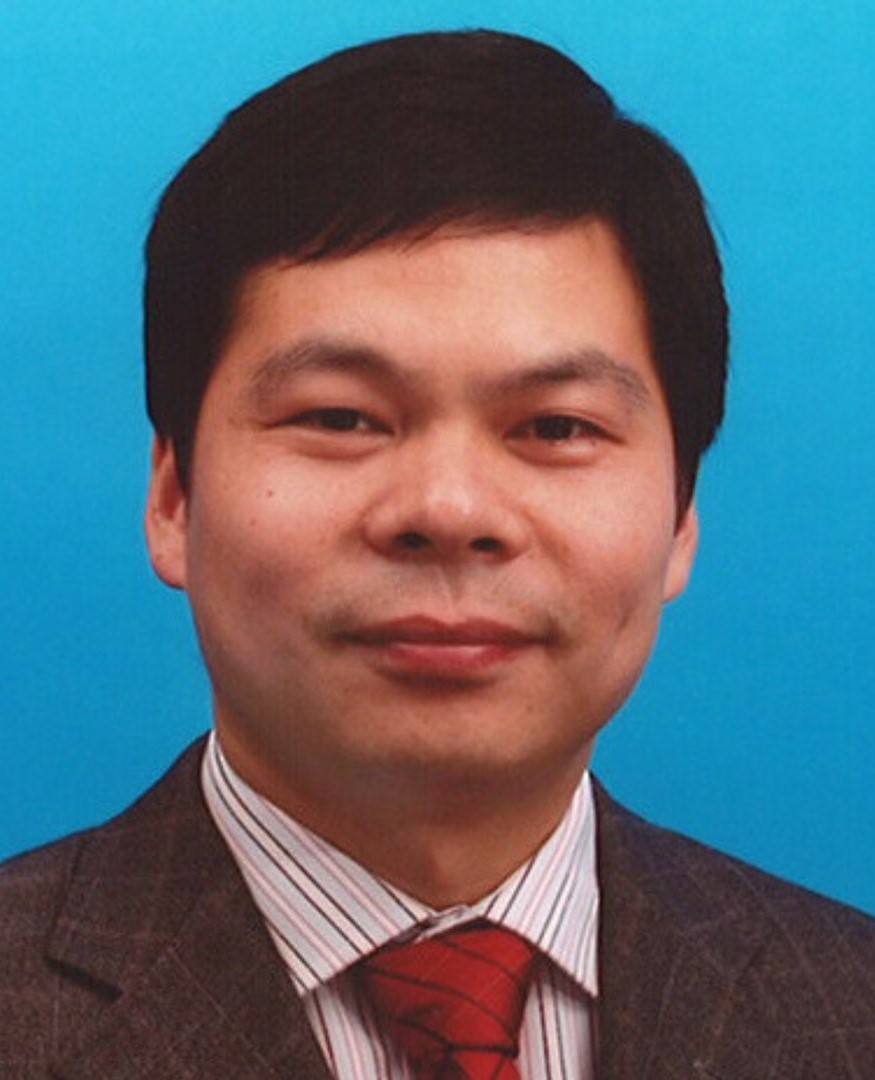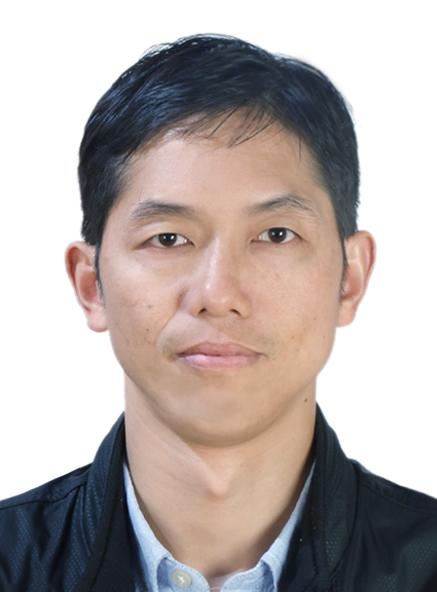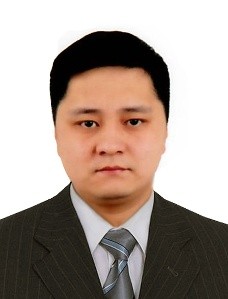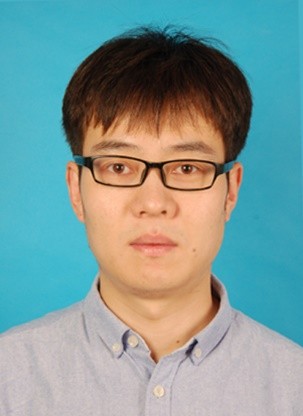Keynote Speaker
More information will be released soon.
RSAE 2025 Keynote Speakers
Prof. Dongrui Wu (IEEE Fellow)
Huazhong University of Science and Technology, China
Biography: Dongrui Wu received a B.E in Automatic Control from the University of Science and Technology of China, Hefei, China, in 2003, an M.Eng in Electrical and Computer Engineering from the National University of Singapore in 2006, and a PhD in Electrical Engineering from the University of Southern California, Los Angeles, CA, in 2009. He is now Professor and Deputy Director of the Key Laboratory of the Ministry of Education for Image Processing and Intelligent Control, School of Artificial Intelligence and Automation, Huazhong University of Science and Technology, Wuhan, China.
Prof. Wu's research interests include brain-computer interface, machine learning, computational intelligence, and affective computing. He has more than 200 publications (11000+ Google Scholar citations; h=54). He received the IEEE Computational Intelligence Society (CIS) Outstanding PhD Dissertation Award in 2012, the IEEE Transactions on Fuzzy Systems Outstanding Paper Award in 2014, the IEEE Systems, Man and Cybernetics (SMC) Society Early Career Award in 2017, the USERN Prize in Formal Sciences in 2020, the IEEE Transactions on Neural Systems and Rehabilitation Engineering Best Paper Award in 2021, the Chinese Association of Automation Early Career Award in 2021, and the Ministry of Education Young Scientist Award in 2022. His team won the First Prize of the China Brain-Computer Interface Competition in four successive years (2019-2022). Prof. Wu is the Editor-in-Chief of IEEE Transactions on Fuzzy Systems.
Speech Title: Machine Learning in Brain-Computer Interfaces
Abstract: A brain-computer interface (BCI) enables direct communication between the brain and external devices. Electroencephalograms (EEGs) used in BCIs are weak, easily contaminated by interference and noise, non-stationary for the same subject, and varying across different subjects and sessions. Thus, sophisticated machine learning approaches are needed for accurate and reliable EEG decoding. Additionally, adversarial security and privacy protection are also very important to the broad applications of BCIs. This talk will introduce machine learning algorithms for accurate, secure and privacy-preserving BCIs.
Prof. Xingjian JING
City University of Hong Kong, China
Biography: Prof. JING received his B.S. degree from Zhejiang University, Hangzhou, China, M.S. degree and PhD degree in Robotics from Shenyang Institute of Automation, Chinese Academy of Sciences, Shenyang, China, respectively. Thereafter, he received a PhD degree in nonlinear systems and signal processing from the Department of Automatic Control and Systems Engineering, University of Sheffield, Sheffield, U.K. His current research interests are generally related to Nonlinear Dynamics, Vibration, and Control focusing on theory and methods for employing nonlinear benefits in engineering, including nonlinear frequency domain methods, nonlinear system identification or signal processing, vibration control, robust control, sensor technology, energy harvesting, nonlinear fault diagnosis or information processing, bio-inspired systems and methods, bio-inspired robotics and control etc.
Speech Title: Tunable Bi-stabile Propulsion for Underwater Robots
Abstract: High maneuverability and energy efficiency are essential for underwater robots in engineering applications. Aquatic species, through natural evolution, exhibit agile and efficient swimming capabilities that can be harnessed to enhance robotic swimmers. A key challenge in this domain is the design and control of an effective propulsion system. This study introduces a novel, highly flexible, and controllable bistable nonlinear mechanism, referred to as a "fishtail." This mechanism integrates an elastic spine with a lightweight parallel linkage system. By actively controlling the endpoint of the elastic spine, the compliant tail achieves exceptional controllability and tunable bi-stability, resulting in a highly efficient and precisely controlled bistable elastic propulsion system. Experimental results indicate that this new bistable fishtail can attain a speed of up to 0.8 m/s, with a cost of transport as low as 9 J/m/kg, and an average turning speed of up to 107°/s with a turning radius of just 0.31 body lengths. This study offers a viable and efficient approach to designing nonlinear compliant propulsion systems for underwater vehicles by leveraging nonlinear dynamics.
Prof. Fulong Ning
China University of Geosciences (Wuhan), China
Biography: Fulong Ning, professor, doctoral Supervisor, national-level Talent, currently serving as Dean of the School of Mechanical and Electronic Information at China University of Geosciences (Wuhan). He is a recipient of the Special Government Allowance of the State Council and a Leader of the Science and Technology Innovation Team of the Ministry of Natural Resources. His main research focuses on geological engineering and geological equipment.
Speech Title: Design and Implementation of an Automated Core Storage System for the Deep-Sea Drilling Vessel
Abstract: To address the shortcomings of traditional ocean drilling vessels in core transfer and storage, such as heavy reliance on manual labor, poor safety, low transportation efficiency, and high labor intensity, land-based automated warehousing systems and container automatic loading systems have been introduced into the core transfer and storage of ocean drilling vessels. These systems have been optimized based on sea conditions, enabling **high efficiency, intelligence, and automation** in core transfer and storage for ocean drilling vessels. This innovation fills the gap in the field, develops key technologies for automatic core storage and transfer of ocean drilling vessels with China's independent intellectual property rights, and plays a crucial role in leading the development of emerging marine equipment industries and enhancing China's comprehensive capabilities in smart marine technologies and marine resource/energy exploration and development.
Prof. Haitao Liu
Tianjin University, China
Biography: Dr. Liu is currently a Professor with School of Mechanical Engineering, Tianjin University. He is the vice president of IFToMM China-Beijing Member Organization, member of the standing committee of the Robotics Branch of the Chinese Mechanical Engineering Society, and committee member of the Collaborative Robotics Branch of the Chinese Association of Automation. His research interests are mainly placed upon theoretical development and industrial application of robots/manipulators having parallel/hybrid architectures. He has been the principal investigator of projects granted by the National Key R&D Program of China and the National Natural Science Foundation of China, etc. His achievements won a 2nd class National Award for Technological Invention, a 1st class Award of Tianjin Technological Invention, and a 1st class Award of China Machinery Industry Science and Technology, etc.
Speech Title: A Model-Data Driven Methodology for Robot Calibration
Abstract: The absolute pose accuracy is a crucially important performance specification for industrial robots, especially for those designed and developed for metal cutting where relatively high accuracy is required. It has been well accepted that calibration is an effective and economical way to improve pose accuracy provided that satisfactory repeatability can be ensured via manufacturing and assembly processes. Due to geometric and nongeometrical source errors as well as relatively weak and varied rigidities, the pose accuracy of a machining robot behaves highly configuration dependent in nature. Consequently, the absolute pose accuracy of the existing machining robots after calibration are normally five times lower than their repeatability. Therefore, it is a great challenge to develop a more effective calibration strategy that potentially enables the pose accuracy of machining robots to be improved. Having a brief review on the existing approaches for robot calibration, this presentation will introduce a model-data driven calibration methodology that allows the pose errors arising from various configuration dependent source errors to be compensated. A 5-axis machining robot will be employed to illustrate the full procedure and effectiveness of the proposed approach.
Prof. Ning Sun
Nankai University, China
Biography: Ning Sun is a Young Scholar of the Changjiang Scholars Program and a professor with Nankai University, Tianjin, China, and the Shenzhen Research Institute of Nankai University, Shenzhen, China. He received the B.S. degree in measurement & control technology and instruments from Wuhan University, Wuhan, China, in 2009, and the Ph.D. degree in control theory and control engineering from Nankai University, Tianjin, China, in 2014; he was a Japan Society for the Promotion of Science (JSPS) Fellow from 2018 to 2019. His research interests include intelligent control for mechatronic/robotic systems with an emphasis on (industrial) applications. Dr. Sun received the 2021 IEEE Transactions on Industrial Electronics Outstanding Paper Award, the Machines 2021 Young Investigator Award, the 2019 Wu Wenjun Artificial Intelligence Excellent Youth Award, the ICCAR 2022 Young Scientist Award, the 2024 IEEE Transactions on Systems, Man, and Cybernetics: Systems Outstanding Associate Editor Award, the 2023 International Journal of Control, Automation, and Systems Best Associate Editor, and several outstanding journal/conference paper awards. He serves as an Associate Editor for several journals, including the IEEE Transactions on Industrial Electronics, IEEE Transactions on Systems, Man, and Cybernetics: Systems, IEEE Transactions on Intelligent Transportation Systems, IEEE/ASME Transactions on Mechatronics, and IEEE Systems Journal. He is a Senior Member of the IEEE.
Speech Title: Intelligent Perception and Control for Underactuated Cranes With Applications
Abstract: As heavy industrial engineering machines, cranes have been playing very important roles in various fields, such as logistics, construction, metallurgy, and manufacturing, among others. The major task for cranes is to transport cargos from their initial positions to desired locations rapidly and accurately, with negligible swing. At present, most cranes used in practice are manipulated by human operators, which exhibits such drawbacks as low efficiency, poor anti-swing performance, incorrect operations, and high risks. Therefore, the problem of anti-swing positioning control for cranes important both theoretically and practically. Cranes are typically underactuated systems, i.e., they have fewer control inputs than their degrees of freedom (DoFs), making their control problem challenging. In this presentation, I will first share some of our recent results on dynamics analysis, motion planning, and intelligent control of different crane systems, including overhead cranes, rotary cranes, tower cranes, ship-mounted cranes, etc., with hardware experiments and applications. Then, some of our extended and related researches on robotic systems with similar dynamic characteristics will also be discussed briefly, including self-balance robots, pneumatic artificial muscle (PAM)-actuated robots, metal ingot polishing-oriented industrial robots, and so on.
Prof. Xingwei ZHAO
Huazhong University of Science and Technology, China
Biography: Xingwei ZHAO is a professor at the School of Mechanical Science and Engineering, Huazhong University of Science and Technology. He is a National Outstanding Youth Fund recipient and a Chutian Scholar of Hubei Province. He received his bachelor's and master's degrees from the University of Duisburg-Essen in Germany and his Ph.D. from the Technical University of Berlin. His main research areas include humanoid robots and embodied intelligence. He won the First Prize of Hubei Science and Technology Progress Award in 2023, the Leading Technology Award of Sci-Tech China in 2022, the Special Prize of Mechanical Industry Science and Technology Award (Technical Invention) in 2022, and the Gold Award of Good Design of the Chinese Mechanical Engineering Society, etc. He serves as a member of the Committee of the Robotics Branch of the Chinese Mechanical Engineering Society. He has published over 50 SCI papers and obtained more than 20 Chinese invention patents. His related papers have won the Excellent Scientific and Technological Paper Award of the China Association for Science and Technology, the Excellent Scientific and Technological Paper Award of the Chinese Mechanical Engineering Society, and the High-Impact Paper Award of Science China: Technological Sciences, etc.
Speech Title: Robotic Dextrous Manipulation and Applications
Abstract: With the development of artificial intelligence, sensing technology and bionics, the dexterous operation technology of robots is gradually breaking through the rigid limitations of traditional industrial robotic arms and moving towards higher precision, greater adaptability and intelligence. This report systematically reviews the core technologies, application scenarios and future trends of robot dexterous operation, elaborates on the application methods of vision and force perception in dexterous operation, and applies them in scenarios such as robot processing and manufacturing, surgical robots and humanoid robots for practical implementation.
